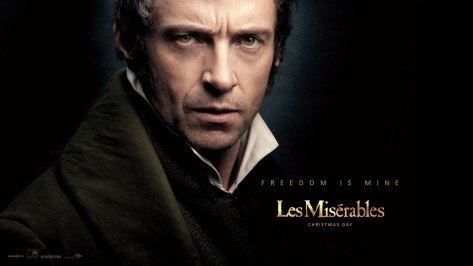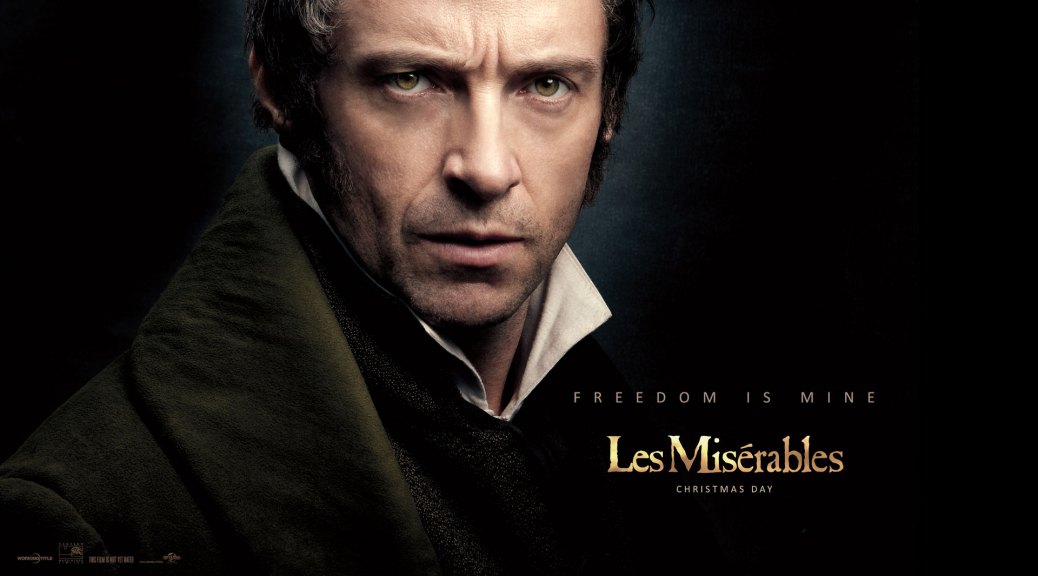 This movie is amazing. My wife and I were lucky enough to get a baby sitter and go out to see it last night, and we both came back with the same reaction – a profound story, wonderfully told, fabulous cinematography, and for me a reminder that for all of the ‘Miserables’ in the world, God’s grace and mercy can shine through. I had seen the musical a couple of times, but not for about ten years, and we’ve both read the book. I was quickly sucked into the story in a way that didn’t happen with the other recent Les Mis movies, and it never once lost my attention.
This movie is amazing. My wife and I were lucky enough to get a baby sitter and go out to see it last night, and we both came back with the same reaction – a profound story, wonderfully told, fabulous cinematography, and for me a reminder that for all of the ‘Miserables’ in the world, God’s grace and mercy can shine through. I had seen the musical a couple of times, but not for about ten years, and we’ve both read the book. I was quickly sucked into the story in a way that didn’t happen with the other recent Les Mis movies, and it never once lost my attention.
My immediate reaction was that so many of the scenes were better able to convey the complexity of the story on the big screen, than in the theatre. There are things you can do with a camera, and a close up of an actors face that cannot be done on the stage. The addition of the song ‘Suddenly’ was one such part. Taking place in the back of the carriage, Valjean realises the effects the act of loving another selflessly (Cosette) can do for you.
We were very impressed with the acting. So many of the shot had the camera right up in the actors’ faces as they poured out their hearts. For the performers, there was nowhere to hide. They managed to act and sing and cry and portray the real anguish of the situations. In Anna Hathaway’s case, she had her (real) hair cut at the same time. Anne Hathaway will surely get an oscar for her portrayal of Fantine. In my opinion, Hugh Jackman has a good shot too (although he has tough competition from Daniel Day-Lewis in Lincoln).
We learnt here that Jackman can really act, and he can really sing. There is always a worry when people known for acting start singing – and we knew that Amanda Seyfried (Mamma Mia) could sing, as could Samantha Barks who also played Eponine on stage, but Jackman, Crowe and Redmayne were unknown quantities. Crowe’s voice is not the best of the bunch, but he did the role justice, and he did a good job of his solo pieces, especially ‘Stars’. The range of emotion and role that Jackman had to play was enormous. The scene where he is searching his soul over whether to submit to God and accept the bishops act of grace is raw and eloquent. And when he wasn’t on screen, Hathaway and Barks were not far away. Barks will surely have a great future as her portrayal of eponine was a nuanced as any established movie actor (see below). The trio of ‘A Heart Full of Love’ in which Eponine was feeling dejected as Cosette and Marius got to know one another was exquisite.
The story is well-known with deep resonance of grace, love and compassion set against the rather uncompromising law-based faith of the inspector Javert. Life for the poor – the Miserables – was hard to endure. The movie adds flesh where the stage production could not. Fantine’s descent into despair, from her factory job to prostitution seemed all too real. I’m sure many today are trapped in a place where work only just feeds the family. In writing the book Victor Hugo wanted to shine a lens on their plight and show that simple acts of kindness and grace make a difference. He certainly did that. Acts of kindness can change people as it did Valjean, and the effects of that overflowed to Fantine, Cosette and Marius and numerous others too. As the sing in the finale “to love another person is to see the face of God’.
I was struck by the hope-filled ending. Whatever they faced in their miserable lives, there is a song that points beyond. “Somewhere beyond the barricade is there a world you long to see?”. Well yes, there is. For “the wretched of the earth” there is hope that they will be met in “the garden of the Lord”. That is surely hope, but God’s, and Hugo’s, vision of a transformed world doesn’t start after death. Those who take the message of love, mercy and compassion and share it in acts towards others – allowing others to live in freedom – are working toward this world that I long to see. It’s called God’s kingdom.
But as another blogger wrote, we must not forget that “crying at a performance is not the same as having changed something”. Where do we see the modern-day equivalents of the ‘miserables’ around us? And what can we do to be like Valjean, or even Jesus, to them?
UPDATE: 19/01/2013. Overnight my wife and I were wondering why the musical, and in particular the movie, has been so much more successful than the previous movies made of Les Miserables. Specifically I think of the 1998 film with Liam Neeson and Uma thurman, and the BBC offering from the early 1980s. Both these films lacked something of the power of the novel. I think the reason for this is that these movies did their best to squash a complicated plot into a 2 1/2 hour movie format. They were concentrating on telling the story of what happened. My contrast, the novel not only tells you the plot but shows the motivations and meaning behind the actions of the characters. The musical film keeps this important aspect from the novel, as the music and lyrics is able to show a depth of purpose, the internal struggle of the characters as well as advancing the story (combines with far superior acting). The songs serve as soliloquies and windows into the souls of the characters. There is an extra layer that combination of music and film together can provide that the earlier movies missed. Consequently the themes of grace and hope are so much stronger in the recent movie than in the earlier ones.
